France, Germany Say Iranian Attack On Erbil Undermines Nuclear Talks
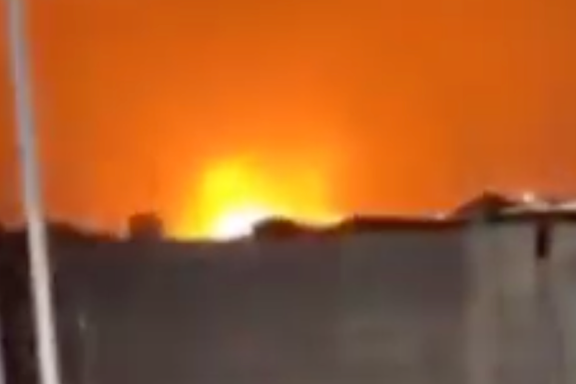
France and Germany have condemned Sunday’s Iranian ballistic missile attack on Erbil, northern Iraq, for undermining efforts to revive the Iran nuclear deal.

France and Germany have condemned Sunday’s Iranian ballistic missile attack on Erbil, northern Iraq, for undermining efforts to revive the Iran nuclear deal.
Paris reiterated the "absolute urgency" of concluding Vienna negotiations and said that Tehran should halt "irresponsible and dangerous behavior" that “threatened stability in Iraq and the wider region.” A statement from a German foreign office spokesperson extended condolences to residents of Erbil.
“As a close partner of Iraq and of the Kurdistan Region of Iraq, we continue to support joint efforts to strengthen Iraq’s sovereignty, its unity and stability and in the fight against Daesh (ISIS)”, Berlin’s statement read.
Germany has up to 500 troops in Iraq, concentrated in the Kurdish region, with the German parliament recently extending their mission until at least October. Iraqi Prime Minister Mustafa al-Kadhimi announced at the end of 2021 the withdrawal of foreign troops from Iraq had begun.
Iran said Sunday the missiles targeted an Israeli facility in Erbil in response to an Israeli airstrike in Damascus that killed two Iranian soldiers March 7. Sunday’s missiles fell close to a United States consulate building, damaging a villa that presumably was used by Israelis and a Kurdish TV station. One civilian was injured.
Israel’s presence in northern Iraq goes back many decades, while some Iraqi political groups are divided over normalization of relations with Israel.
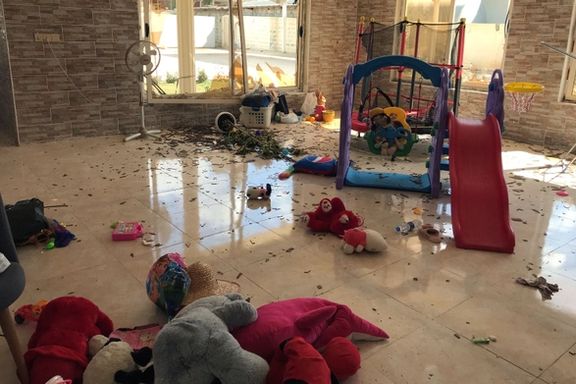
Both the Biden Administration and its critics have condemned Iran’s ballistic missile attack on Erbil in Iraq, but they differ on how to react toward Tehran.
The White House issued a statement by National Security Advisor Jake Sullivan on Monday, saying, “The United States stands with Prime Minister [Mustafa] Kadhimi and the leaders of the Kurdistan Region, President Nechirvan Barzani, and Prime Minister Masrour Barzani, in condemning this assault on the sovereignty of Iraq and its Kurdistan region”.
It expressed US support for “the full sovereignty, independence, and territorial integrity of Iraq”, noting, “We will support the Government of Iraq in holding Iran accountable, and we will support our partners throughout the Middle East in confronting similar threats from Iran”.
Iran claimed it targeted an Israeli spy station in Erbil but missiles fell close to a US consulate building, damaged a villa that presumably was used by Israelis and a Kurdish TV station.
The Wall Street Journal in an editorial said, "The Biden Administration’s hell-bent pursuit of a nuclear deal with Iran grows harder to understand with each provocation from Tehran. The latest came Sunday in a missile attack near a US Consulate under construction in northern Iraq."
Several lawmakers and former American officials have reacted to the attack apparently targeting the US consulate in Iraq’s Erbil urging an end to Iran nuclear talks, but some senior US officials have appeared to suggest that the assault would not impact the chances of concluding a nuclear agreement with Tehran.
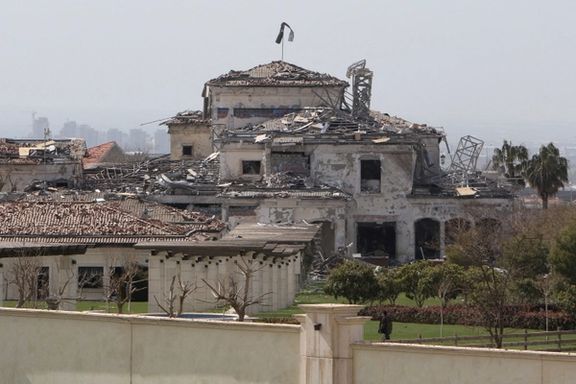
Referring to the intelligence agencies’ 2022 annual report, Representative Nicole Malliotakis said in a tweet on Sunday that such reports as well as the attack in Erbil “should put an end to all discussions on a new nuclear deal with Tehran”.
The 2022 Annual Threat Assessment published by the Office of Director of National Intelligence on Tuesday said, "We assess that Iran will threaten US persons directly and via proxy attacks, particularly in the Middle East,” adding, “Iran also remains committed to developing networks inside the United States—an objective it has pursued for more than a decade.”
On March 6, Secretary of State Antony Blinken sidestepped a question about whether the renewed nuclear agreement with Iran would also address threats on US soil, including threats against his predecessor, Mike Pompeo, and Trump administration Iran envoy Brian Hook to avenge the targeted killing of Iran's most powerful military general Qasem Soleimani in January 2020.
"We were very clear when we were in the deal originally that nothing about the deal prevents us from taking action against Iran when it's engaged in actions that threaten us, threaten our allies and partners. That will very much continue," Blinken said.
Concurring with Blinken that the threats do not have to be addressed in any renewed nuclear-related deal, House Intelligence Committee Chair Adam Schiff said, "These other malign activities of Iran's, their plots against the US personnel or Americans around the world we can deal with and have to deal with separately, and we should deal with them aggressively. We need to go after all of this, not necessarily in one agreement."
After the attack on Erbil, Pompeo reiterated that “Iran is the world’s largest state sponsor of terror. It must remain designated as such” adding that “Terrorist-related sanctions must remain in place”.
There have been reports that the Biden Administration has agreed to remove terror-related sanctions imposed by the previous administration to secure a nuclear agreement with Tehran.
Iran’s missile attack came as diplomats have stopped nuclear talks in Vienna after 11 months of negotiations even though they say an agreement was very close to be finalized. The pause came after Russia on March 5 demanded an exemption from Ukraine sanctions in its economic and other relations with Iran. Tehran has not objected to Russia’s sudden move, which is bound to delay an agreement and lifting of Iran’s economic sanctions, vital for the government.
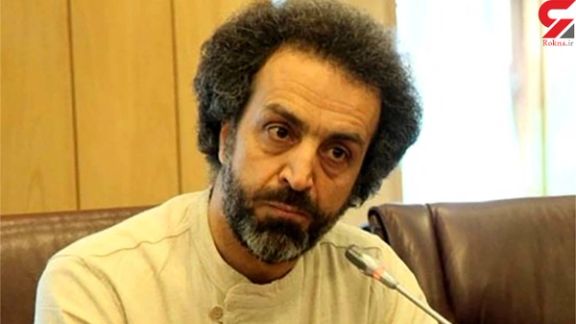
A professor in Iran says women should take charge of political and social change in the country, because they can succeed with fortitude, without violence.
The commentary by Esfahan University academic Mohsen Ranani, published by reformist newspaper Etemad in Tehran on Saturday, has met with angry reactions from Iran's conservative press.
Ranani's social commentary was also carried by many Iranian websites and quoted by dozens of Iranians on social media as a serious critique of the social and political situation in Iran. The commentary was taken from a speech by Ranani in Esfahan last week.
The academic said that the Iranian government pretends not to hear what critics and intellectuals say about the country's problems while officials openly call them "social germs" in their speeches. As a result, it appears that intellectuals have nothing more to say.
This, he said, has left only those who want regime change and pseudo-artists who crack jokes about everything, as the only groups who can win the hearts and minds of young Iranians.
The academic said young Iranians can either choose to be like Rouhollah Zam, the rebel journalist who was abducted abroad and hanged in Iran in 2020, or they can be careless and ignorant like Amir Tatallou, the controversial singer and a rebel in his own right who cooperated with Ebrahim Raisi's election campaign in 2017 but was later jailed and finally fled to Turkey where thousands of young Iranians go to attend his concerts.
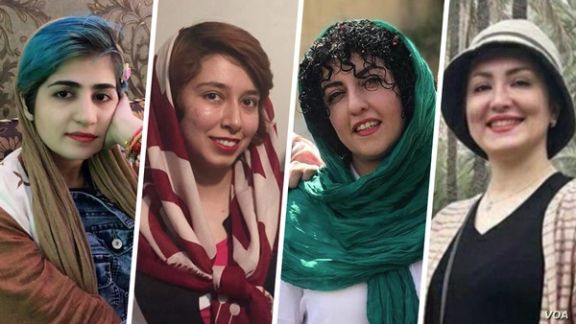
Under these circumstances, the only hope for a rational and ethical change in Iran can be pinned on Iranian women, Ranani said, adding that they are going forward step by step and taking back the self-confidence and rights men took from them in the course of history.
He suggested that Iran's male activists should give their place to women who act, instead of writing articles or delivering speeches. Ranani opined that women do not stage revolutions or riots as Iranian men did in the 20th century upheavals. He named several prominent female activists currently in Iranian prisons.
Ranani said that Iranian women will impose change on Iranian men, and traditional patriarchal government. "Their weapon is silence and calm resistance. They are armed with non-violent steadfastness," Ranani said, adding that "No power can resist against this silent resistance."
The IRGC-linked Javan newspaper said in a commentary that the academic was simply angry because the government has ignored him and accused Etemad of being a "radical media outlet" that has gone beyond the frontiers of press freedom in the Islamic Republic. Ironically the commentary in Javan was authored by a woman, Kobra Asupar.
Asupar also said that Ranani's comment about Iranian youths having no role models apart from Zam and Tatallou was an invalid and irrelevant generalization. About his comments regarding women, Asupar said that Iranian women played a major part in the Islamic revolution in 1979. So, Ranani cannot say that "good women have supported a bad revolution!"
Meanwhile, hardline daily Kayhan also lashed out at the academic, attacking his background as a reformist, claiming that reformists have plundered public resources and now pretend to be innocent. The Kayhan then blamed the reformists for all of Iran's problems and mentioned former President Hassan Rouhani and former Vice President Es'haq Jahangiri's brothers' involvement in corruption cases to prove its case and said that Ranani should be accountable for his support of reformist government's "harmful" economic policies.
The Kayhan called Ranani's commentary "an outrageous shift from plundering the people's resources to claiming to be following their demands."
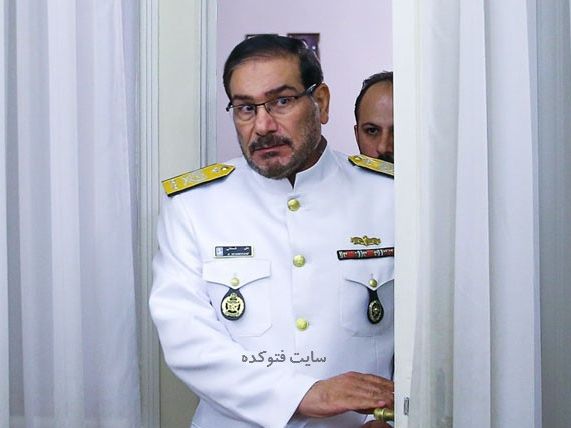
Iran’s national security chief says the Tehran protects its interests both on the battlefield as well as in diplomatic arenas, not relying on East or West.
The secretary of Iran's Supreme National Security Council (SNSC), Ali Shamkhani, said in a tweet on Sunday evening that “The battlefield and Diplomacy -- as two components of Iran's power -- are used proportionally and judiciously to protect our security and national interests”.
“Forty years of experience has taught our people that relying on Western or Eastern powers will neither guarantee our rights nor our security”, he added.
Shamkhani made the remarks amid a major escalation of tensions in the Middle East Iran launched a dozen ballistic missiles at Erbil on Sunday and Russia has thrown a wrench in the Vienna talks to revive the 2015 nuclear deal between Iran and world powers.
Some media and politicians in Iran continue criticizing Russia for “obstructing” the nuclear talks in Vienna while hardline newspapers defend Russia's aggression against Ukraine and tend to minimize the impact of Moscow's demand for exemption from Ukraine sanctions on Iran's nuclear deal with the West.
The missiles landed near the US consulate's new building and the neighboring residential area in Iraq's northern Kurdish regional capital of Erbil but caused only material damage and one civilian was injured.
In a statement on Sunday, Iran’s Revolutionary Guards took responsibility for the missile attacks, saying Israeli "strategic centers" were the target of the attack.
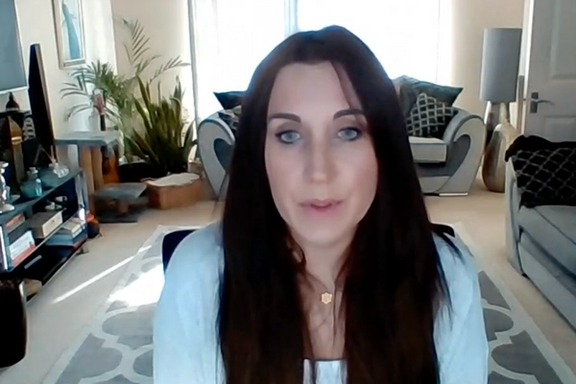
Catherine Shakdam, who was recently accused by some in Iran of infiltrating the office of Supreme Leader as an Israeli agent has denied all such allegations.
In a nearly hour-long interview with Iran International television, the French-British journalist said she had "no direct line" to Supreme Leader Ali Khamenei's office or any relationship, "professional or otherwise", with any of its officials.
She also told Iran International that she wished she had not written the article in The Times of Israel, which fueled allegations of infiltration against her.
The revelation of her article led to a scandal in Iran, with some military, political and religious figures being accused of having ties to “an infiltrator”. There were even accusations that government officials slept with Shakdam and leaked sensitive information.
Khamenei's website, to which Shakdam contributed 18 articles between 2015 and 2017, has denied any relations with her and has deleted her contributions. Shakdam told Iran International that an editor from Khamenei's office contacted her by phone to ask her to contribute articles and analyses but insisted that contact with the said person and others was made only through emails thereafter.
However, on January 16 2020, soon after Iran fired missiles at Ain al-Assad air base in Iraq hosting US forces, in retaliation for the killing of IRGC Qods Force Commander Qasem Soleimani in Baghdad, Shakdam published an article in Citizen Truth about the attack in which she claimed she had been given exclusive early access to an official statement issued by Khamenei's office. She said that according to her exclusive information over a hundred US soldiers had been killed in the attack.
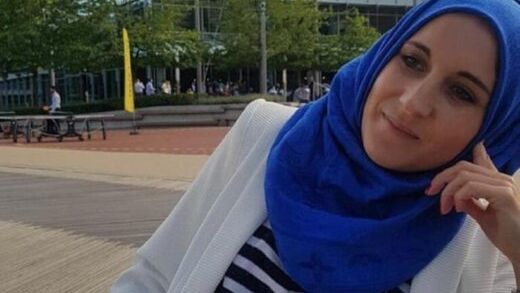
When asked by Iran International who provided her with the document, she said that the individual was from "within Khamenei's office" and had volunteered the information because they wanted it to be published, but she refused to identity her source for safety reasons.
Asked why her articles were removed from Khamenei.ir website, she said as an antisemitic regime that advocates annihilation of Jews, Iranians did not want the writing of a Jew on the Supreme Leader's website.
"It was an embarrassment for them," she said adding that she did not not know if they were aware of her Jewish ancestry when she wrote for Iranian media. "When I reclaimed my history, they had an issue with me … Of course, it's anti-Semitism … I'm just shocked at the level of hatred for someone based on their ethnicity."
But some hardliner Iranian media, such as the flagship Kayhan newspaper, have defended her and said she was no spy. "Maybe they're interested in the truth, maybe they're not interested in misinformation and peddling lies," Shakdam said about Kayhan defending her.
Shakdam wrote numerous articles and gave many interviews to Iranian state media over the years in which she defended the Islamic Republic's official propaganda, and now insists she was not lying at the time.
"In my mind Iran was being mis-portrayed in the media and I felt the need to set the record straight. Now I do believe that I was being used by the regime and they used my naivety and probably lack of understanding geopolitics at the time, to their own end, but it doesn't mean that I was lying.” She claimed she fell for such propaganda because she did not agree with policies of Saudi Arabia, not just in Yemen but in the region, and felt that Iran needed to be defended.
"Because I have been to Iran and met with Iranians and seen it for myself what the regime has done to Iran and how it functions in opposition to the values that it claims to protect … I realize that there was a dichotomy, a great hypocrisy, so I decided to distance myself from the regime," she said.
Shakdam said she could not stand by a regime that called out "for genocide of an entire people on the basis of their religion and ethnicity", not just Israel but all Jews, and destabilized other countries. "It's not a criticism against the Iranian people, it's criticism against a political system."

Iran Sunday condemned Saudi Arabia's execution of 81men the previous day as a "violation of basic human rights principles and international law."
"This inhumane act was in violation of basic principles of human rights and international law, and contrary to human principles and accepted legal procedures," a ministry spokesperson said, according to state media.
Reports say that 41 of the victims were Shiite opponents of the government.
Iran itself has the highest number of executions in the world after China. In January alone it hanged 46 people. A number of high-profile political prisoners have also died in custody under suspicious circumstances.
Iran’s Shiite regime is a staunch enemy of Sunni Saudi Arabia and the two rivals have been engaged in bitter conflicts in the Middle East, including a seven-year war in Yemen.
On Sunday, Tehran also announced an end to talks with Riyadh, which started one year ago with Iraqi mediation to help solve their differences.
Saudi Arabia denies accusations of human rights abuses and says it protects its national security through its laws.
Its state news agency, SPA, said on Saturday the men executed on Saturday had the right to an attorney and were guaranteed their full rights under Saudi law during the judicial process.